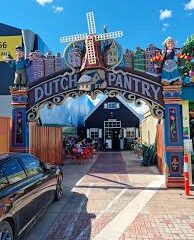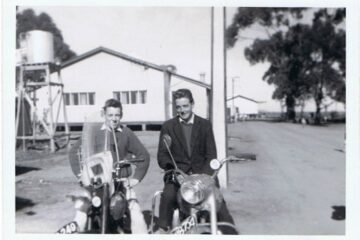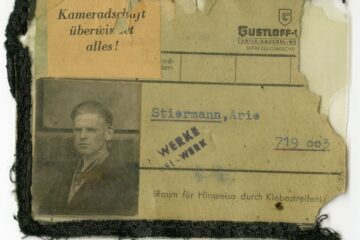The origins of the Brisbane Lions can be traced back to the founding of Hollandia-Inala F.C. by Dutch immigrants in 1957. From the beginning they were based on land in the Brisbane suburb of Darra and then moved to Pine Road, Richlands.
The following article is published in “150 Years Richlands, Inala & Neighbouring Suburbs in Brisbane’s South West by Vicki Mynott. We received permission to re-publish this in the DACC Hub (2021).
Lions Soccer Club
By Henk Mollee, 2009
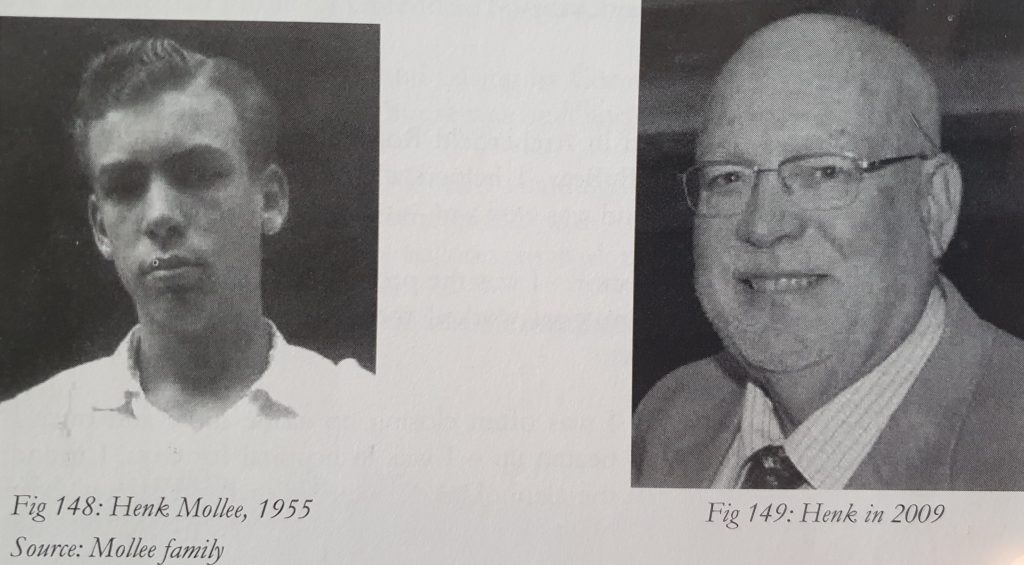
My family of ten came to Australia in 1955. We spent a few months at Wacol Migrant Centre then moved to Inala – my brother Fons still lives in the family home there.There were several Dutch families settled in the area, Van Wyk grew flowers in Richlands – plus Morcus in Wacol -Carole Park.
Almost at once, in 1956, we started Hollandia as a soccer team for Dutch immigrants and played some casual games against other sides. In 1957, Hollandia Soccer Club was officially founded, as a member of the Brisbane & Ipswich Soccer Association. I was the goalkeeper in that first team, over fifty years ago.
This was also the start of the Queensland Lions Social Club. The football let to social events for the families, and the club grew out of that. In 2009, there are about 20,000 social members.
The senior players number about 80 – 40 each for men and women. There are also dozens of little ones who come along to play for fun – but we don’t register them.
The land
We started playing at the Darra Reserve (on Ipswich/Archerfield Road) – and we still use it for some games.
Eventually we bought land in Pine Road, Richlands, which has become the Lions Stadium. The first land we bought in 1968 from the Jamiesons. We used $10,000 from our first player transfer payment as the deposit. It included a house, which was not the advantage we expected. This is the block we sold to the NAQ, and they have altered and added to it over the years.
Very soon after that we bought the area that is now the field. Lastly, we bought this top block from the Baradels in 1985 – a total of 12 acres.
The Club facilities
First there was nothing – families took sandwiches and tea to have in the cars parked round the grounds.
Then once we bought the land, we immediately built change rooms and a canteen – using volunteer labour. The women ran the canteen and sold home-cooked pies and soup in the winter. About the same time – in 1968 – the Club bought the Coconut Grove and set up The Lions Den clubhouse and Office there. We ran Bingo there for about 30 years, and only sold the property when we built the club. In 1997 we built a licensed club – with bistro and bars, pokies, and function rooms.
The 60s was a time of many immigrants, and many migrant clubs e.g., Italian, and Polish as well as Dutch clubs sprang up. There was also a big business in charter flights to the home countries – the club organised travel too for 5 or 6 years – until the airlines decided to keep the lucrative business for themselves.
The club is also a community facility eg in 2009 we have hosted:
- School Regional Competition
- Police Service Shield
- The Brisbane Women’s competition
- Master’s competition organised from here – with over 80 teams
- Samoan National Day
For over 20 years we have held a pre-season ‘Silver Boot’ competition over four weeks. It has been very successful: it is now quite prestigious and raises some funds for the club.
The NAQ (Netherlands Ass Qld) is next door to the Lions Stadium, but it was always a separate group.
The name
Initially, in 1957, we formed Hollandia as a Dutch team. Then as more locals joined, we became Hollandia-Inala 1957-1974.
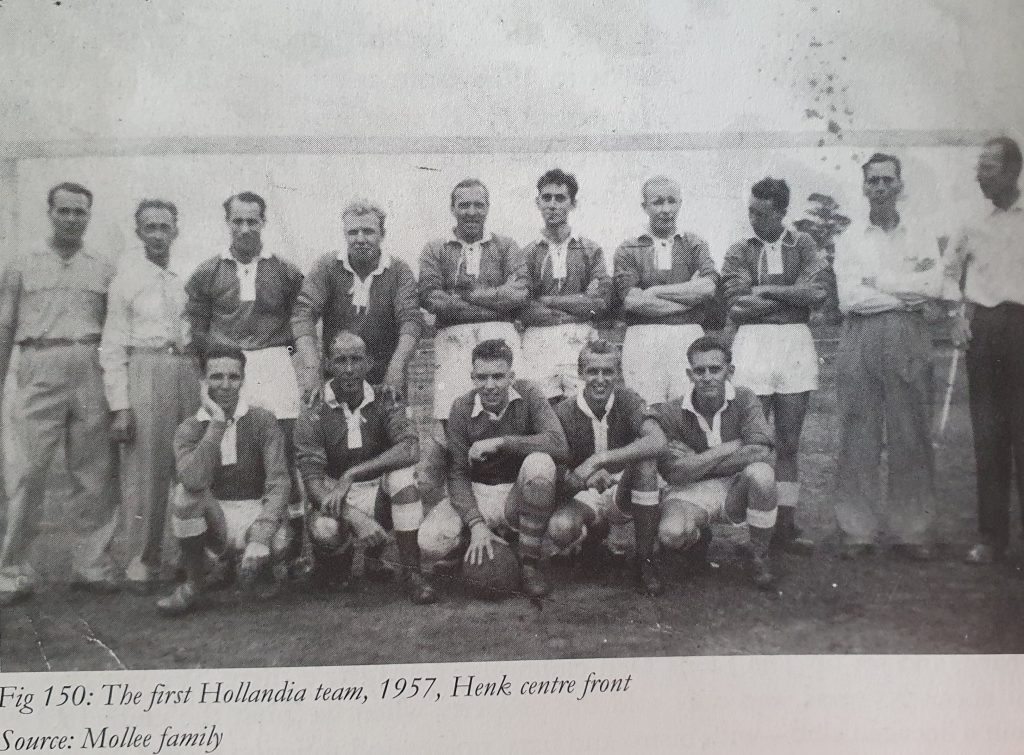
Due to some ethnic conflicts in the soccer league, the government outlawed ethnic club names. After much discussion, we eventually simply took the name of our emblem, the lion. So for over 25 years, 1975-2001, we were the Brisbane Lions.
When AFL club Fitzroy moved from the Gold Coast in 1999, they wanted the name Brisbane Lions. After a lengthy court case, we were advised that the AFL had deep pockets and good contacts. Reluctantly, we settled – and from 2002 we have been the Queensland Lions Football Club.
Now in 2009, there are still suggestions for name changes.
The Roar
Queensland Roar was formed by the club in 2003 – the name was chosen to reflect the parent club. The Queensland Lions withdrew from the Local Premier competition to build up this side for the new national competition, and the Roar played in the inaugural “A” League season in 2005-06.
But to play in the “A” League, a team needed to be owned by a commercial organisation, not a members-run, not-for-profit club. There were some stresses as the adjustments were made. Some members formed a company, others sold their shares to the company. But by 2008 the company had no Queensland Lions members. In 2008 the Roar finally moved out, and the club re-entered the local competition.
Queensland Lions has been a leading soccer club in Queensland for many years: it is still one of the largest. The list of premierships is very long, and the 20,000 social members indicate another form of success.
The organisation of football is changing. We don’t pay our players anymore – we try to find them sponsors. After some years in retirement, Ben and I have returned to help – as volunteers of course.
In 2005, we held a Players Reunion, to celebrate the Roar launch. In 2007, the club’s 50th anniversary was overshadowed by the excitement of the Roar preparations. I won’t see it, but I’m sure the Club will hold a 100th Anniversary in the coming years
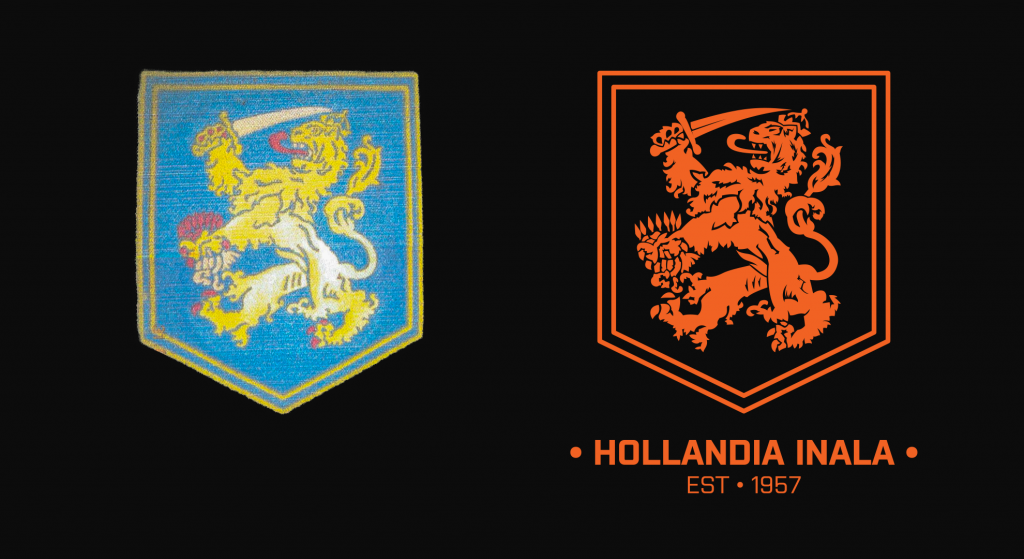
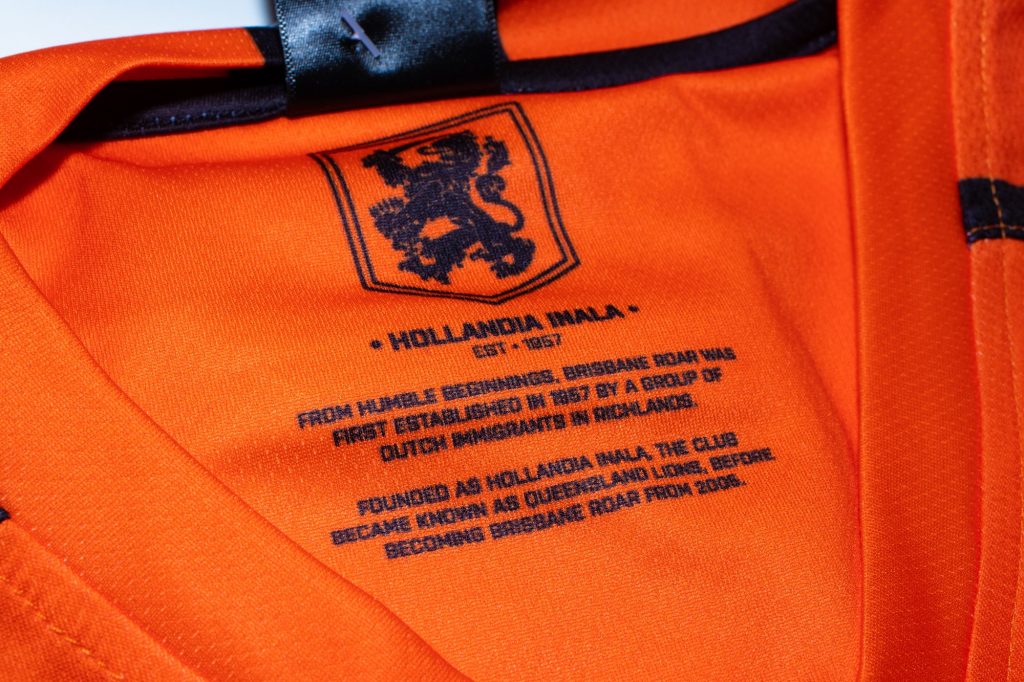
The club competed under this name for almost 20 years until, in the interest of inclusiveness and because perceptions that members of the public saw soccer as a migrants’ game, all clubs were required to adopt non-ethnic names after a ruling by the Queensland Soccer Federation in 1973. They changed the name in Brisbane Lions.
In 1977 the Lions were invited to play in the National Soccer League and played in the league as Brisbane Lions until the end of the 1988 season. The Lions won the following three Premierships in ’73, ’74 and ‘75, beating Azzurri (Brisbane City) into 4th, 2nd and 2nd respectively. In all Hollandia-Inala/Brisbane Lions/Queensland Lions have won 14 premierships.
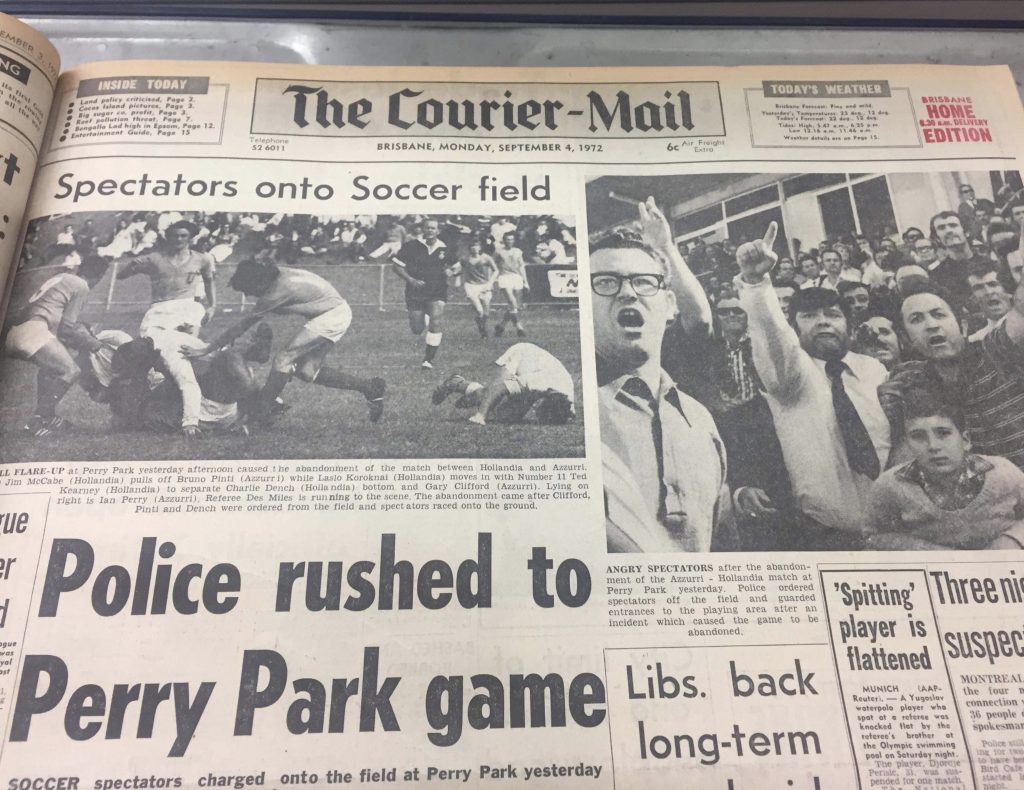
From 1989 the Brisbane Lions played in the Brisbane Premier League at that stage they merged with their arch-rivals Brisbane City and changed their name to the current Queensland Lions.
In 2004 it was announced that the Lions had won the right to compete in the newly formed A-League, using the name Queensland Roar.
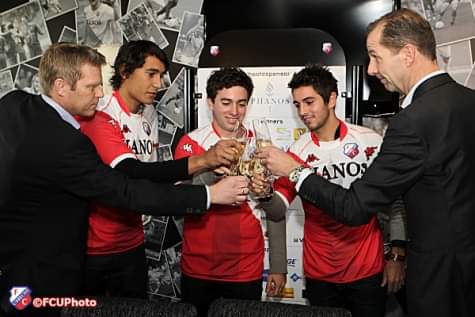
In 2010 Brisbane Roar signed a partner agreement with the dutch Eredivisie club Utrecht. This included – as in the picture to the right – the transfer of a trio of young and very talented Roar players, Tommy Oar, Michael Zullo and Adam Saroto. A deal that was worth a combined $1.8 million to the Brisbane Roar. All three players also became Socceroos and played many international games for Australia.
The orange Brisbane Roar T-shits and rampant lion crest on the appears mirror those of the National Dutch Football Organisation (KNVB).
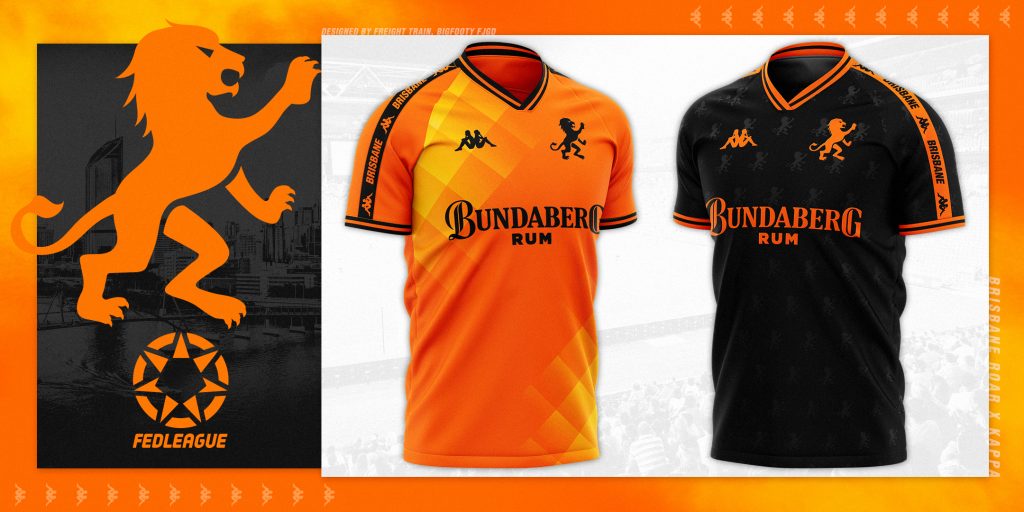

Paul Budde (December 2021)
See also: The rich history of Dutch football clubs in Australia
Some memories from members of the Old Brisbane Facebook App.
Shazzy Lee M y brother’s played for Hollandia at Darra, then moved to Pine Road we even started a Women’s team & a girls team, most of the Mums pulled out, so my Mum, became the Goalie, us girls were from 11 – 16 yo, first time players.
Paul Colenbrander I use to play for Hollandia in late 60’s
Janette Downie My Mum and Dad where Dutch immigrants my Dad would help do the line marking and Mum would help in the canteen and sell the raffle tickets when Hollandia was at Darra, I just loved going and helping them as a small child just amazing memories I got to help Dad with the line marking one day Let’s just say I didn’t get to help with that job again ? my family last name was Zorge .
Jack Blom played in Brisbane in the late 1950ts in Inala.
Other links:
